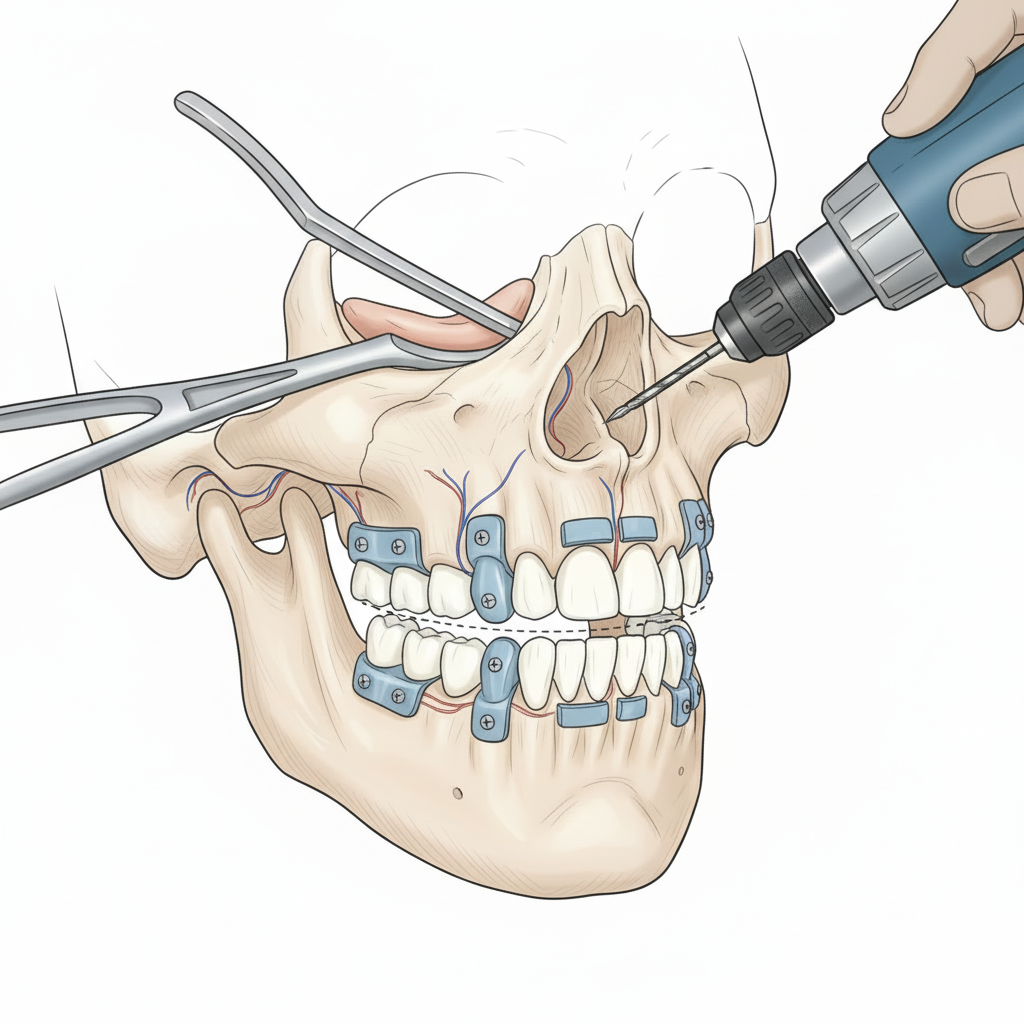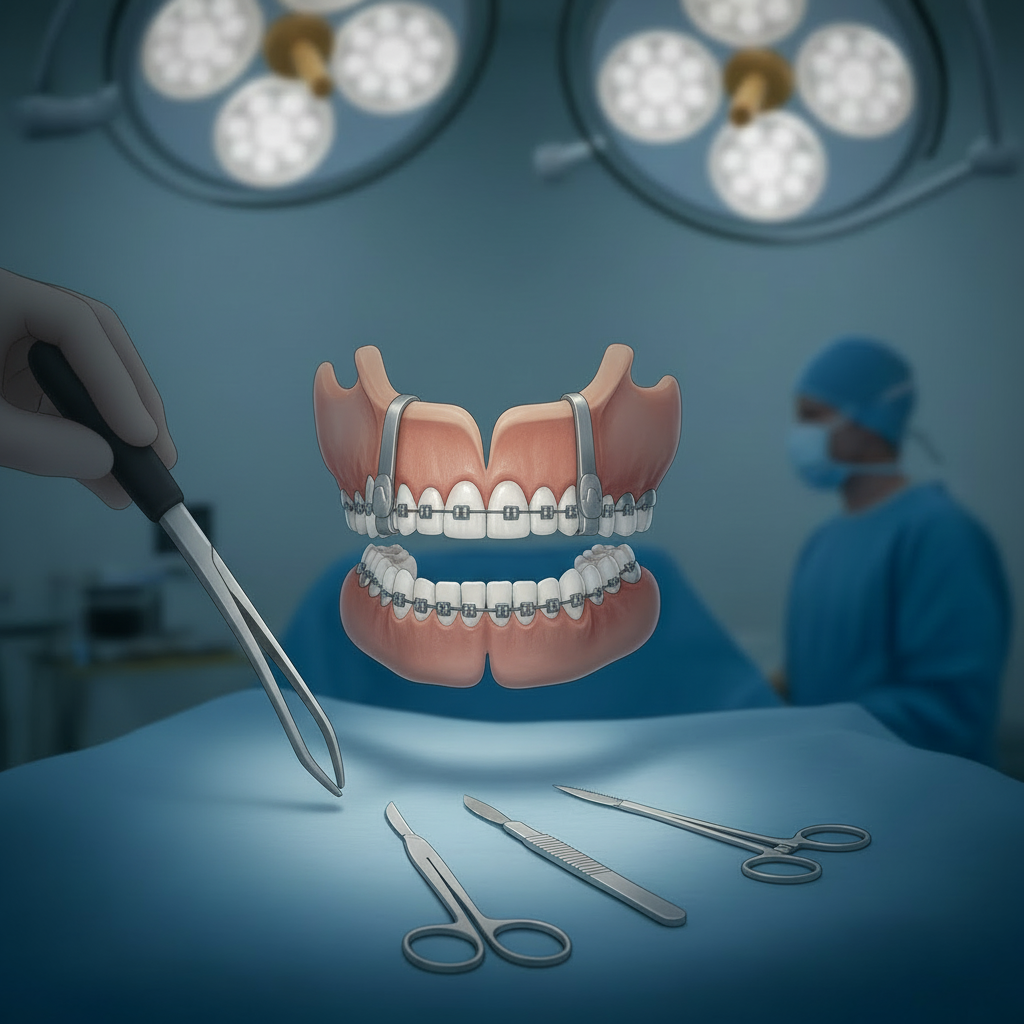Navigating the world of healthcare can sometimes feel overwhelming, especially when it comes to understanding when and how to see a specialist. One type of specialist you might be referred to is a maxillofacial surgeon, a medical professional dedicated to diagnosing and treating conditions related to the face, mouth, and jaw.
If you’re wondering whether you need a referral to see a maxillofacial surgeon, you’re in the right place. This guide will break down what a referral is, when it’s typically needed, situations when you might not need one, and how you can obtain one. By the end, you’ll feel confident about taking the next steps to prioritize your care.
What Does a Maxillofacial Surgeon Do?
A maxillofacial surgeon is a specialized professional with expertise in diagnosing and treating complex conditions of the face, jaw, neck, and mouth. They perform procedures ranging from wisdom tooth extractions and corrective jaw surgeries to the treatment of facial trauma. Additionally, they handle conditions like oral cancers, temporomandibular joint (TMJ) disorders, and reconstructive surgeries for congenital deformities.
Distinct from general dentists or oral surgeons, maxillofacial surgeons undergo extensive training, earning both a dental degree and a medical qualification in many cases. Their unique skill set allows them to provide comprehensive solutions for complex conditions that fall at the crossroads of medicine and dentistry.
When faced with conditions affecting your oral and facial health, a maxillofacial surgeon can offer advanced treatment option often not available elsewhere.
What Is a Referral?
A referral in healthcare is essentially a formal recommendation or authorization provided by a primary care physician, general dentist, or another healthcare provider. This recommendation allows you to consult a specialist, like a maxillofacial surgeon, for specialized care.
Referrals are an integral part of many healthcare systems. They help ensure patients receive the correct level of care for their condition, reduce unnecessary specialist appointments, and control costs for both patients and insurance companies. Referrals also provide specialists with essential context about your medical or dental history, streamlining the diagnostic process and making consultations more productive.
When Is a Referral Needed?
Whether or not you need a referral to see a maxillofacial surgeon often depends on your specific situation and healthcare plan. Here are some common scenarios where a referral is typically required:
1. Insurance Requirement
Many insurance companies, particularly those under health maintenance organization (HMO) plans, require a referral to consult specialists. This helps manage costs and ensures you’re directed to appropriate services. Without a referral, your insurance may not cover the consultation or treatment.
2. Complex or Non-Urgent Issues
If your condition is not an emergency but requires specialized input—for example, ongoing TMJ disorder or jaw misalignment caused by dental crowding—your primary care physician or dentist may assess your needs first. They can then refer you to a maxillofacial surgeon if necessary.
3. Chronic Conditions
Persistent medical conditions like sleep apnea or recurrent oral infections may first require a referral from a general practitioner or ENT specialist for targeted care.
4. Multi-Disciplinary Treatment Plans
For cases involving collaboration between multiple healthcare providers (like oncology teams managing cancer treatment), referrals ensure that your care is well-coordinated.
When Is a Referral Not Needed?
While referrals serve an important purpose, there are instances where you can directly consult a maxillofacial surgeon without one. Here are some scenarios where a referral may not be required:
1. Emergency Situations
If you’ve experienced facial trauma, such as fractured jaws, broken teeth, or severe lacerations, you can typically seek immediate care from an emergency department or directly visit a maxillofacial surgeon.
2. Private Health Insurance
Certain private insurance plans offer more flexibility, allowing members to book appointments with specialists like maxillofacial surgeons directly, without needing a referral.
3. Self-Pay Patients
If you’re paying out of pocket, you may not need a referral to see a maxillofacial surgeon. Many specialists accept direct appointments for uninsured patients.
4. Routine Dental Surgery
If your general dentist has identified a need for procedures like wisdom tooth extraction or certain orthodontic surgeries, they may refer you directly, or you can book with a maxillofacial surgeon on your own.
How to Get a Referral to a Maxillofacial Surgeon
If you find yourself in need of a referral, follow these steps:
1. Speak to Your General Practitioner or Dentist
Your healthcare provider will evaluate your symptoms and determine whether seeing a maxillofacial surgeon is appropriate.
2. Understand Your Insurance Policy
Check your insurance plan to understand if a referral is required. Confirm that your provider is within the insurance network to avoid unexpected costs.
3. Provide Medical/Dental History
Be prepared to share your medical or dental history with your primary care provider. This ensures your referral includes all relevant information the surgeon may need.
4. Follow-Up Scheduling
After receiving the referral, the next step is to contact the surgeon’s office to book your consultation. Some healthcare providers will even assist in scheduling your appointment.
5. Check Required Documentation
Ensure you carry any necessary documentation to your appointment, such as the referral letter, medical history, and relevant scans or X-rays.
Benefits of Seeing a Maxillofacial Surgeon
Consulting a maxillofacial surgeon comes with a host of benefits. Here are a few reasons why their expertise is invaluable:
- Specialized Care: Maxillofacial surgeons are uniquely qualified to handle complex oral and facial health issues.
- Comprehensive Solutions: They offer procedures that address both the functional and aesthetic aspects of treatment.
- Advanced Technology: Many maxillofacial surgeons employ cutting-edge techniques like 3D imaging and computer-assisted surgery for precise results.
- Improved Outcomes: With their advanced training, these specialists ensure accurate diagnoses and effective treatments, minimizing complications.
- Holistic Approach: They often collaborate with other specialists, such as ENT doctors or orthodontists, to provide well-rounded care.
Take the Next Step Towards Better Oral and Facial Health
Ultimately, whether or not you need a referral to see a maxillofacial surgeon depends on your specific circumstances. Understanding your healthcare plan, medical needs, and alternative options can help streamline the process and get you closer to the care you deserve.
If you’re experiencing pain or looking for a specific treatment, don’t hesitate to explore your options. Speak with your dentist or physician about a referral, or find a trusted maxillofacial surgeon in your area. The right expertise can make all the difference in achieving lasting relief and improved quality of life.





